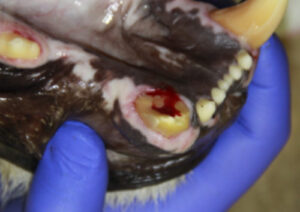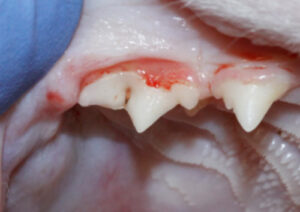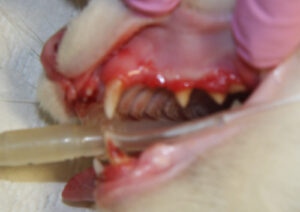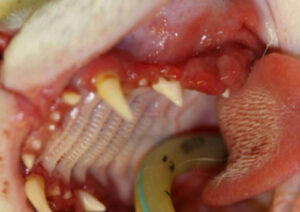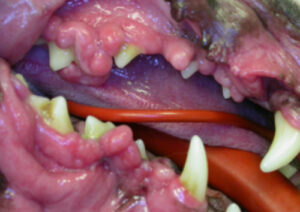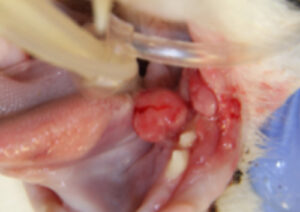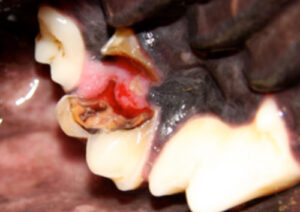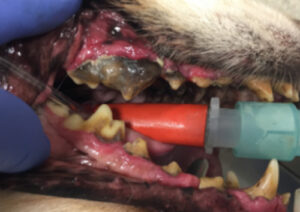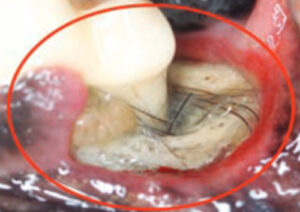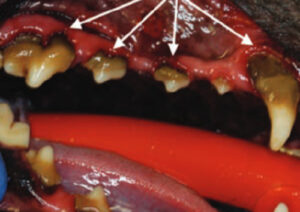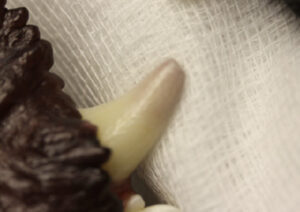Puppies and kittens
The most commonly seen dental concerns in young pets relate to either trauma sustained to their baby teeth or developmental abnormalities to the teeth or jaws. These problems will be covered briefly here but will be discussed in more detail in our “malocclusions” information sheet.

Trauma to baby teeth
Puppies and kittens put everything in their mouths, it is their way of exploring the world around them, unfortunately, their long and fragile baby teeth are often not capable of sustaining this level of abuse (as seen in this picture of a badly fractured upper canine (fang) tooth in a puppy that will need removing). If your puppy or kitten is showing pain when eating or playing with toys, it may be a normal part of the teething process, however it may be an indication of a broken or damaged tooth, if he/she will let you, then examine the mouth and if you are unsure then check with your Vet.
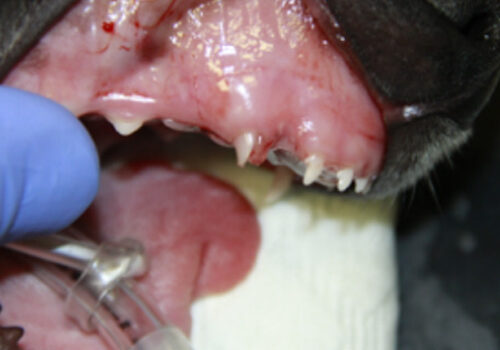
Malocclusion
Occlusion is the term used for normal alignment of the top and bottom arcades of teeth (top photograph), therefore, malocclusion refers to an abnormality in this alignment. This can occur due to an abnormal shape or position of the bottom jaw in relation to the top jaw or due to an abnormal position or angle of a single (or multiple) tooth/teeth. There are multiple types of malocclusions, some can be related to the puppy’s breed and will never cause the puppy any issues, however others cause sharp teeth to make contact with sensitive soft tissues (bottom photograph).
Over time this can cause big problems. If noticed early, then some of these malocclusions can be corrected. Your vet will check for problems with your pet’s occlusion at his/her primary vaccinations however, some can only become evident as the pet ages therefor regular check-ups are recommended in young pets.
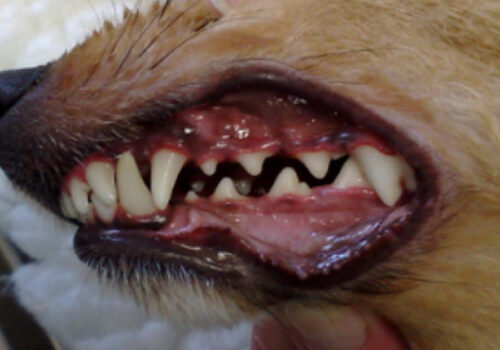
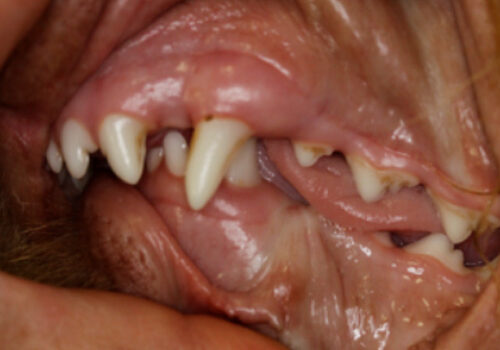
Retained baby teeth
The majority of a puppy or kitten’s baby teeth should have been replaced by adult teeth by the age of eight months. Occasionally the adult tooth erupts, and the baby tooth fails to fall out (this is most common in the upper canine (fang) teeth of small breed dogs but can happen to any tooth). This can be problematic as it causes overcrowding and can predispose the healthy adult tooth to disease by encouraging plaque formation and in extreme cases, pushing the adult tooth into an abnormal position. Your Vet will check for retained teeth at your pet’s general check ups and will likely recommend extraction if one is found.
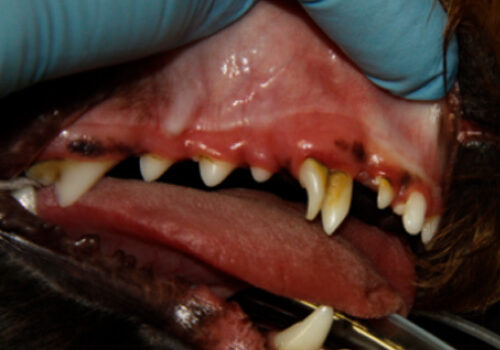
Adult dogs and cats
Adult dogs and cats are faced with a different set dental of problems to puppies and kittens; some traumatic, some autoimmune and some caused by poor hygiene.

As previously discussed with puppies and kittens, it is also possible for adult dogs and cats to fracture their teeth, although much larger forces are required to do so. These can vary in severity depending upon the type of fracture and which structures of the tooth are exposed. If any of your pet’s teeth appear abnormal, please get them checked by a vet; if treated quickly then some teeth can be preserved.
Home care
This is not a comprehensive guide but gives you an idea of common dental diseases that you may identify in your dog and cat at home. Frequent home care is key to good oral health. If you are frequently examining your pet’s mouth then you will quickly get to know what is normal for him/her, meaning you are much more likely to spot any abnormalities. We would recommend that your pet has a full general health check including an oral health assessment at least every six months with a Veterinary Surgeon. If you ever have any questions or concerns about your pet’s health, please contact your Vet directly.
Pet Health Information
Find out more
To assist owners in understanding more about a general pet health conditions we have put together a range of information sheets to talk you through some of the more common health concerns seen and treated by our General Practice Vets.

